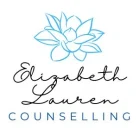Are counselling sessions leaving you feeling mentally, emotionally and physically drained?
I remember when I first started counselling as a client. Initially, I looked forward to the sessions each week, but after a few months, my enthusiasm started to wane a little. I had a good relationship with my counsellor, and although some of the things I was exploring could be very emotional or challenging for me at times, I felt ok speaking about them and knew I wanted to continue, so the ebbing of my eagerness as ‘that’ time rolled around each week, confused me. After experiencing weeks of feeling this way and struggling to understand why, the realisation dawned on me that it wasn’t before or during therapy but after therapy that was key. I usually felt some kind of emotion as I came out of the room, and I was comfortable with that, but what I really noticed was the way I felt mentally and physically – totally exhausted and utterly drained would sum it up!
I began to realise that the act of talking for 50 minutes was tiring for me. After all, I am an introverted soul, and I fare much better as a listener than as a talker. I also first had counselling years before I even thought of counselling as a career, so my emotional intelligence (and vocabulary!), was much less developed than it is today, which meant it wasn’t uncommon for me to struggle with identifying feelings and emotions. Just trying to figure out what I felt, or where I felt it, really took it out of me in some sessions, and looking back, I also think I worried when I couldn’t ‘name’ it that I was letting my counsellor down in some way. Of course, years on, and with my counselling training behind me, I know that absolutely wasn’t the case at all, and they weren’t expecting anything of me, but it really was how I felt at the time. Sometimes, too, things would pop up that I hadn’t been expecting – a memory, or a really powerful emotion that just seemed to come from nowhere and sidelined me.
What helped me was learning that I needed to decompress and plan in time to do this. My first counselling experience was via an EAP through my employer, so after a session, I was jumping in my car and heading straight back to work, even though I was feeling heavy and in a fog. One of the first things I did was work with my counsellor to reschedule for a different day when I could attend at the end of a workday. This meant I could sit in my car quietly for a time afterwards or process some of my thoughts and feelings on the drive home. It seems so simple, but having this space made such a difference to me, and once it was implemented, the feeling of exhaustion didn’t follow me out of the door after every session. Of course, it still showed up every now and again – therapy, after all, is often about looking at the stressful, painful and difficult parts of our lives, and this in itself is draining, but it became so much more manageable for me.
So, if you too find yourself feeling exhausted, drained or emotionally hungover following therapy sessions (and I want to offer reassurance that it is completely normal to feel this way), here are a few things that may help:
Decompression Ideas:
- If possible, try not to go straight back into work or your day-to-day life, but factor in a little bit of time afterwards to allow for decompression and ease the transition from the therapy space back into daily life.
- A simple grounding technique can be beneficial in anchoring us back to the present when we’re feeling overwhelmed and anxious (especially useful if you’ve been spending a lot of time looking at the past). A simple and effective method to help refocus is the 5, 4, 3, 2, 1 technique – name 5 things you can see, 4 you can touch, 3 you can hear, 2 you can smell and 1 you can taste (you can imagine a food if you have nothing physically to hand).
- Journalling can be highly cathartic – you may want to write, or draw, what you’re feeling and thinking after a powerful session. It may even be just one word or a scribble of colour – go with what feels right for you and know that it doesn’t have to make sense or be shared with anyone.
- Bring in a post-therapy ritual; this might be having a shower, making a comforting drink, walking the dog, engaging in some simple stretches or a few minutes of deep breathing
Do try to speak with your counsellor if you find you are regularly exhausted after counselling sessions. It will help your counsellor to be aware of how you are left feeling and you may be able to explore together some useful decompression strategies.
March 2025
